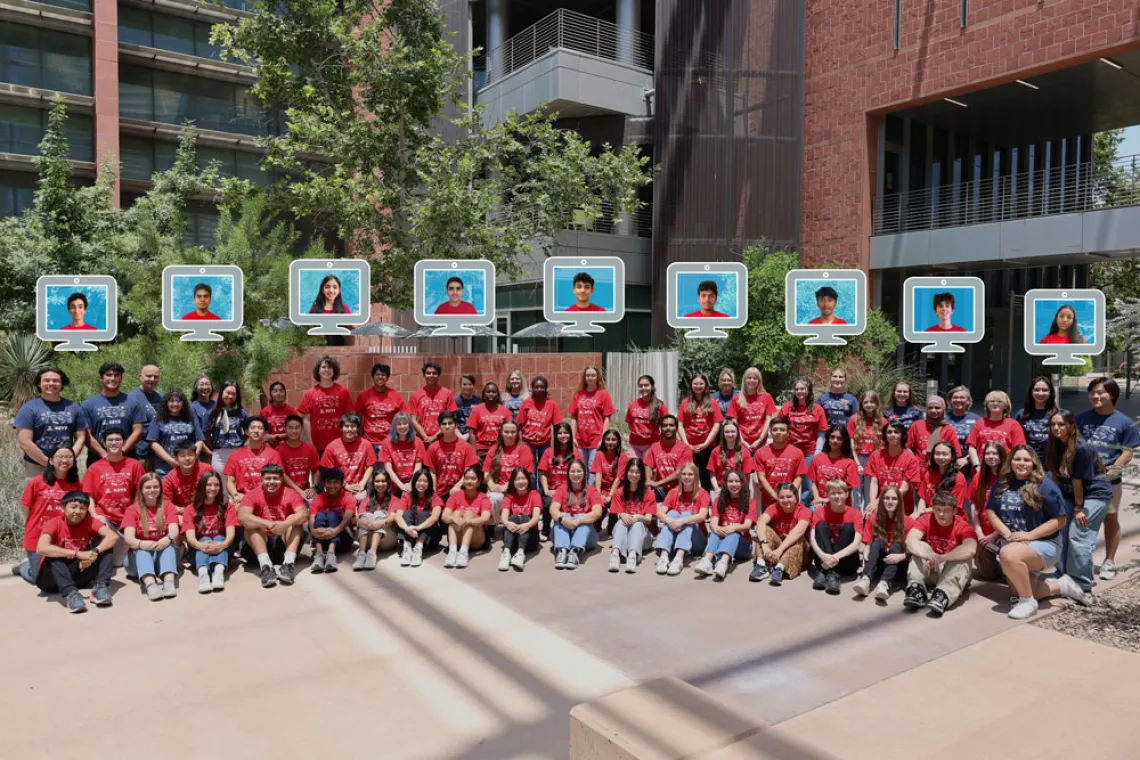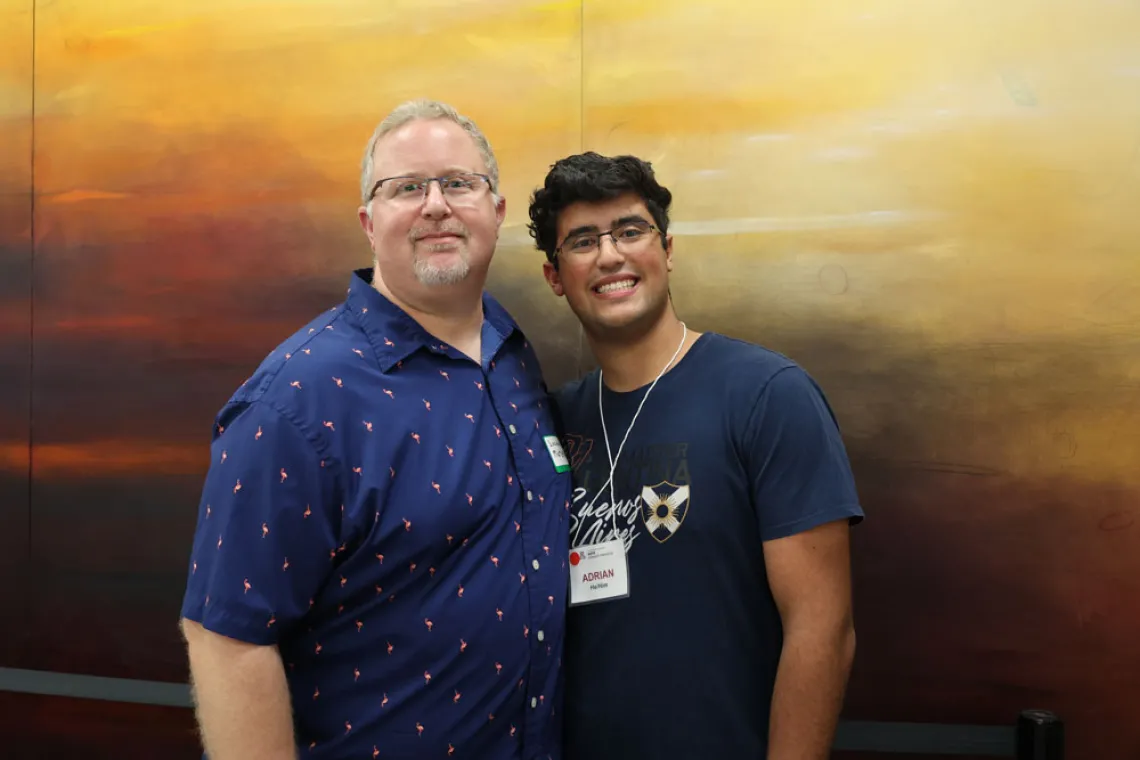KEYS Research Internship welcomes newest cohort for summer 2024
Fifty-nine bright Arizona high school students started their 7-week hands-on research program working with scientific mentors at the University of Arizona BIO5 Institute in early June.

The KEYS (Keep Engaging Youth in Science) Research Internship Program at the University of Arizona BIO5 Institute has launched its 2024 cohort, marking the beginning of a transformative summer experience for high school students across Arizona.
The program officially commenced on June 3 with an intensive training week designed to equip interns with essential research and professional skills.
Training Week: Building biotechnology and computational skills
During the first week, the 59 interns met their mentors and dove headfirst into their training, acquiring valuable competencies that will pave the way for success throughout their internship.
Walking into a scientific laboratory can be intimidating, but KEYS prepares its interns with critical biotechnology skills, from pipetting and gel electrophoresis to polymerase chain reaction (PCR). This foundational knowledge enables the interns to excel in their individual projects and gain confidence as budding scientists.
KEYS interns are also introduced to the basics of data science, including statistics, programming, Excel, and image analysis. Experts at the UArizona also share how the next frontier of data science, including machine learning and ChatGPT, can help with their analyses.
Hands-on research with UArizona faculty mentors
Starting June 10, the interns transitioned to their assigned research labs, working under the mentorship of UArizona faculty members. These mentors guide the students through projects spanning various STEM disciplines, offering practical experience and fostering a deeper understanding of scientific research.
Luciano Matzkin, a first-time KEYS mentor and a member of the BIO5 Institute, shared his excitement about the mentoring experience:
"Meeting the interns at the 'Meet Your Mentor' lunch was exciting but much more exciting for them,” said Matzkin, professor in the Department of Entomology at the UArizona College of Agriculture, Life & Environmental Sciences. “I remember being in high school or undergrad and the thrill of new lab experiences. It's fascinating and a wonderful time for the students."

First-time KEYS mentor and BIO5 member Luciano Matzkin (right) and postdoctoral research Andrew Legan (left) pose with KEYS intern Lucy Waddell (center) at the Meet Your Mentor in early June.
Beyond laboratory skills, KEYS emphasizes the importance of science communication. Throughout the program, interns engage in presentations and activities that teach the best practices of scientific writing, poster creation, and presentation skills.
This training ensures that by the end of the program, the interns are well-prepared to present their research findings at the KEYS Research Showcase on July 19.
Diverse and driven cohort
This year's cohort includes 50 on-campus interns and 9 virtual participants.
Reflecting the program's commitment to diversity and inclusion, 38% of the interns come from underrepresented or underserved backgrounds. The group comprises 47 juniors, 8 seniors, and 5 sophomores, all eager to contribute to and learn from this enriching experience.
Mentoring the future generation of scientists are 54 UArizona faculty members who graciously volunteer their time and resources.
Spotlight on Luciano Matzkin: From intern parent to mentor
A fun story of this year's program is the participation of faculty member Luciano Matzkin, whose connection to KEYS is personal as well as professional. His son, Adrian Matzkin, a former KEYS intern, now serves as a member of the KEYS Crew, the peer-to-peer mentoring element where former KEYS interns return as staff to provide mentorship and support.

Luciano Matzkin, professor of entomology and BIO5 member, stands with his son Adrian Matzkin, a 2023 KEYS alum and 2024 KEYS Crew who is now a University of Arizona undergraduate.
"We regularly have undergrads in our lab, and it's always a fabulous experience for both us and the students. My son had a wonderful time as a KEYS intern last year, which inspired me to give back and share the great experiences I've had," said Matzkin as he explained his decision to become a faculty mentor this summer.
"My son had a fantastic experience last year, and it's been great to see him return as a KEYS Crew member.” Matzkin said, reflecting on the impact of the KEYS program on his family. “The program offered him invaluable opportunities, from lab work to poster presentations, which are priceless for anyone pursuing a career in science. It's been a wonderful experience for our entire family."
The KEYS Research Internship Program continues to be a beacon of scientific curiosity and educational growth, fostering the next generation of scientists and researchers. As the 2024 interns embark on their summer journey, they are not only gaining technical skills but also building a community of like-minded peers and mentors dedicated to advancing science.
For more information about the KEYS program, visit the KEYS website.

